Summary
- Animated Batman movies & series showcase vital Batman scenes not seen in live-action adaptations.
- Batman’s poignant moments with Ace and the Macaroni persona highlight his depth & compassion.
- Key Batman storylines like Jason Todd’s fate, Nightwing’s evolution, and Barbara Gordon’s transformation are expertly depicted in animated adaptations.
While Batman has been a pop culture icon for decades, many of his most defining moments are found not in DC’s live-action movies. Batman is a hefty franchise in the DCU timeline, with a swathe of live-action Batman movies produced since 1943. While many of these have captured the essence of Batman’s history and battle against Gotham’s criminal underbelly, some of the most vital Batman scenes have only been adapted to animation.
DC has released dozens of animated Batman movies, with a slew of adjacent Justice League movies that the Caped Crusader starred in. These have all been widely lauded, often garnering reviews that rival the very best DC movies made in live-action. Meanwhile, many animated Batman series have become iconic entrants in the franchise, boasting some of the most celebrated and memorable performances. Through these, DC has depicted some of the most thrilling Batman moments ever that have not appeared in live-action.
Related
10 Batman Movie Scenes Ripped Straight From DC Comics
Though most Batman movies deviated from the source material slightly, they frequently adapted scenes straight from the pages of DC Comics.
10 Ace’s Final Moments With Batman
Justice League Unlimited Season 2, Episode 13 “Epilogue”
One of Batman’s most poignant moments occurs in the Justice League Unlimited episode titled “Epilogue.” The episode centers on Ace, a powerful teenage meta-human who was experimented on by the villainous Cadmus project. Due to these experiments, Ace develops psychic powers that allow her to warp reality. However, this power also came with a terrible cost: Ace was dying.
Batman is sent to kill Ace but instead decides to comfort the girl. He sits beside her on a swing, holding her hand as she accepts her fate. Ace speaks about her traumatic childhood, while Batman, despite the threat she poses, sees her as a child. The scene is startlingly beautiful and heart-wrenching, producing one of the most compelling Batman scenes ever. It shows how Bruce Wayne has a tender and deeply compassionate streak beneath the cowl.
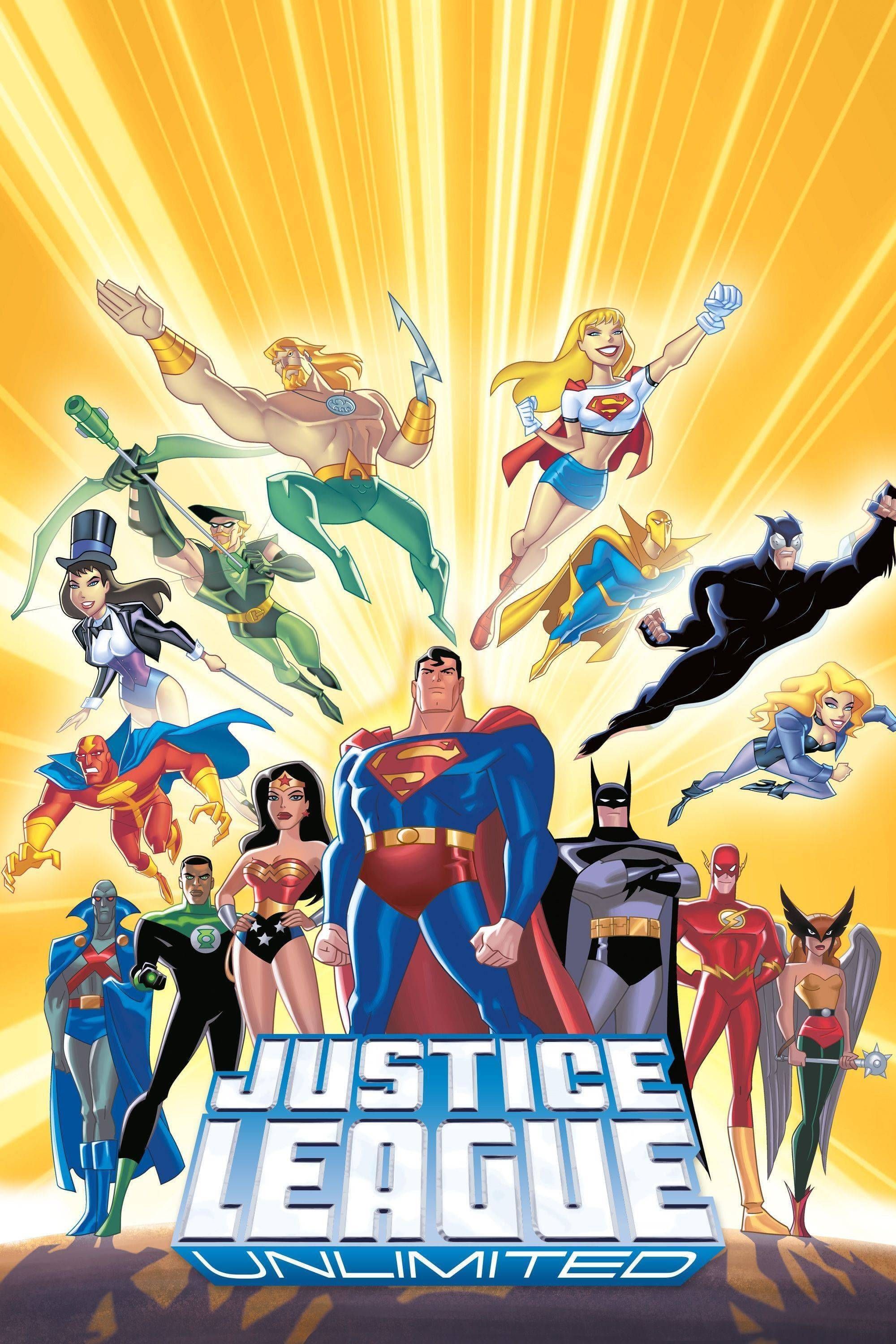
Justice League Unlimited
Justice League Unlimited is the culmination of the DC Animated Universe, reuniting characters introduced in previous shows such as Superman, Batman, and Wonder Woman and introducing new JLA members like Green Arrow, Black Canary, and Booster Gold. The series’ three seasons aired from 2004 to 2006.
- Release Date
- July 31, 2004
- Network
- Cartoon Network
9 Bruce Wayne Begs His Parents To Let Him Quit Being Batman
Batman: Mask Of The Phantasm
Batman: Mask of the Phantasm is one of the most critically acclaimed animated Batman films. In it, audiences witness a moment of vulnerability rarely seen in Batman. Bruce Wayne, tormented by the loss of his parents and the vow he made to them, finds himself at a crossroads when he meets Andrea Beaumont, a woman who brings him happiness and a sense of normalcy.
Bruce visits his parents’ grave, torn between his promise to fight crime and his desire for a normal life with Andrea. He kneels before their gravestones and, with tears in his eyes, begs them to release him from his vow. He confesses that he didn’t count on being happy, that he never expected to find love or a future that wasn’t drenched in vengeance. The scene proffers a rare glimpse at Bruce Wayne’s internal struggle and a rare instance where he questions his destiny.
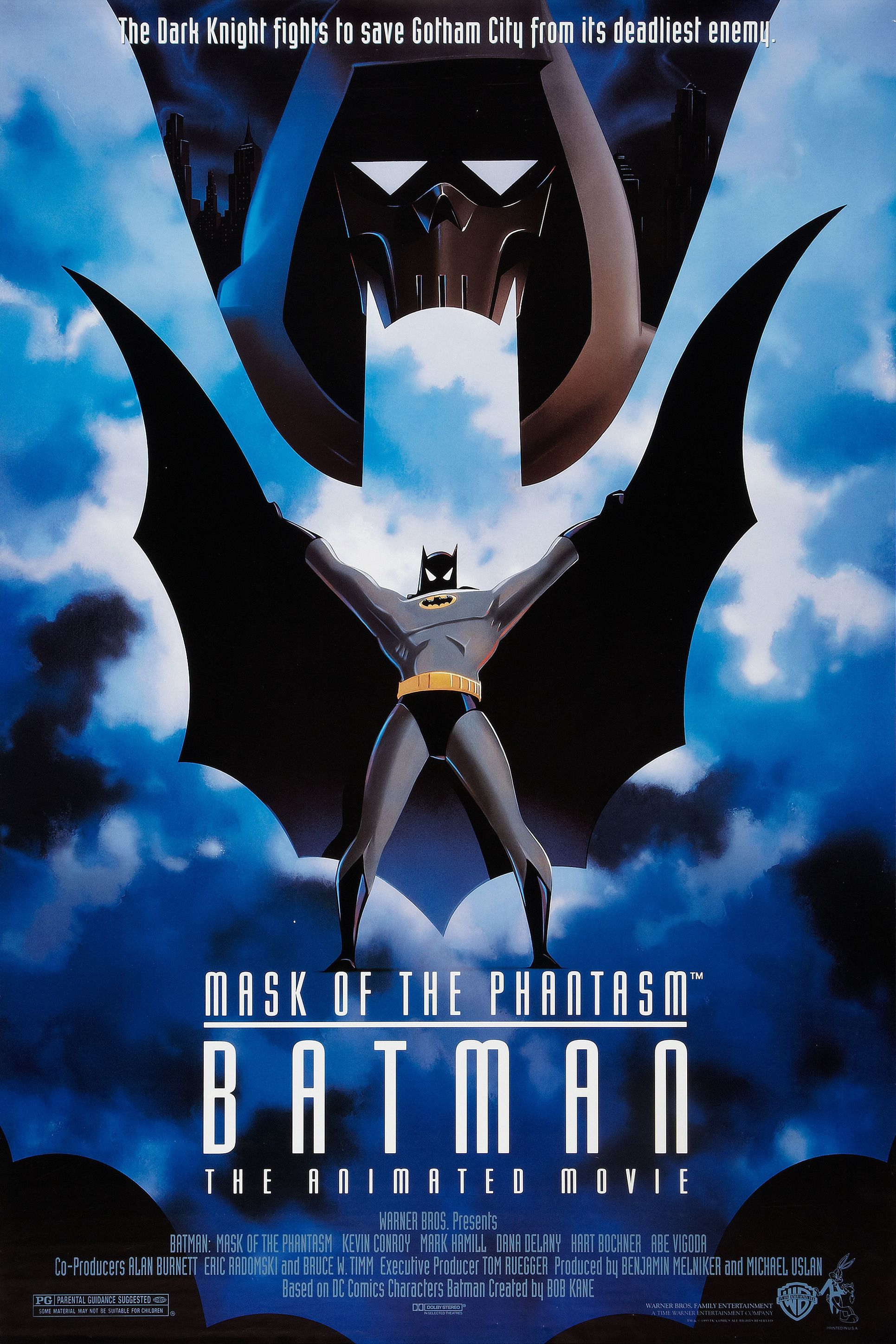
Batman: Mask of the Phantasm
Batman: Mask of the Phantasm is the first movie in Bruce Timm, Eric Radomski, and Paul Dini’s DC Animated Universe, serving as a prequel to Batman: The Animated Series. It pits the Dark Knight against a mysterious vigilante known as the Phantasm, who forces Bruce Wayne to confront his crime-fighting crusade and his traumatic past. Iconic DC voice actors Kevin Conroy and Mark Hamill return as Batman and Joker, respectively.
- Director
- eric radomski , Bruce W. Timm
- Release Date
- December 25, 1993
- Runtime
- 76 minutes
8 “I Am The Night, I Am Vengeance – I Am Batman!”
Batman: The Animated Series Season 1, Episode 10 “Nothing To Fear”
The line “I am vengeance, I am the night, I am Batman!” has become one of the most iconic quotes associated with the Dark Knight. It appears in Batman: The Animated Series episode “Nothing to Fear.” In this episode, Batman faces off against the Scarecrow, who uses his fear toxin to force Batman to confront his deepest insecurities and fears.
Under the influence of the toxin, Bruce is haunted by visions of his father expressing disappointment in him, calling him a failure. This psychological attack nearly breaks Batman, but in a moment of sheer determination, he fights back. As the fear begins to consume him, Batman pushes through, declaring, “I am vengeance, I am the night, I am Batman!” The statement is more than just a declaration; it’s a reaffirmation of his identity and purpose.
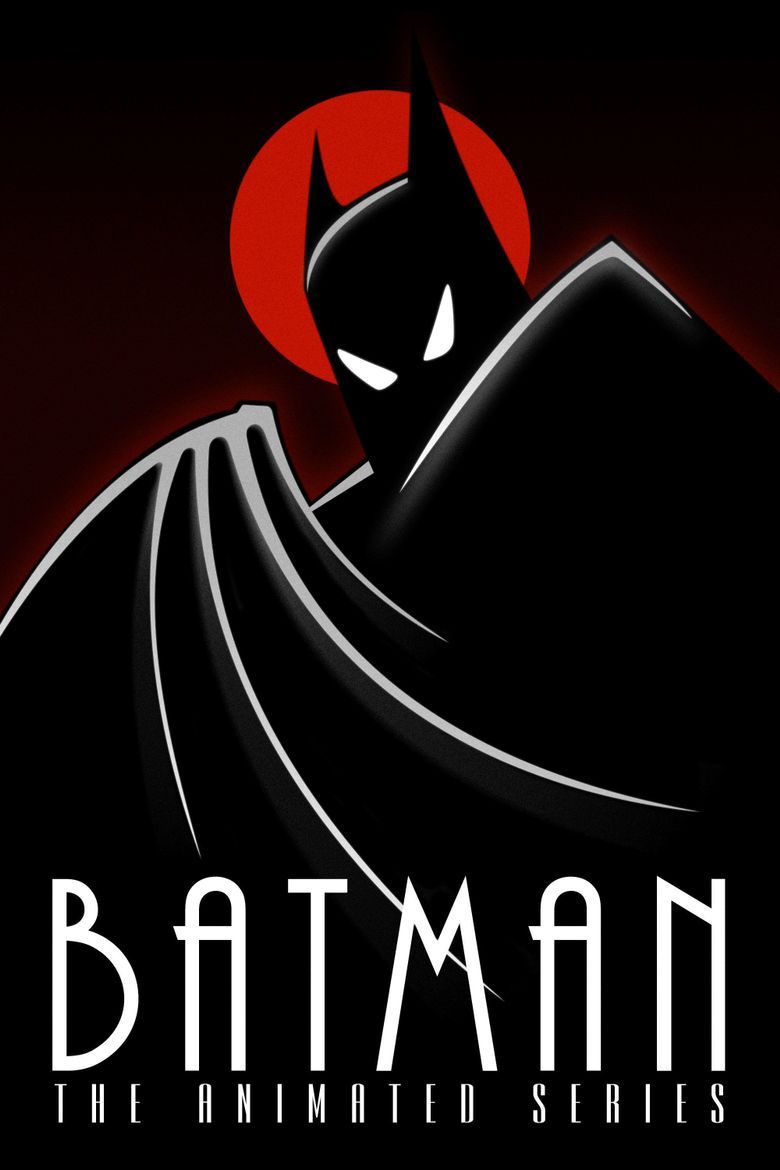
Batman: The Animated Series
Batman: The Animated Series is an award-winning adaptation of the Batman mythos. Remembered for its groundbreaking art style and orchestrated soundtrack, Batman: The Animated Series features the Caped Crusader and countless characters from his rogues’ gallery. Kevin Conroy lent his now-iconic voice to the Dark Knight, with the show also featuring the voice talents of Mark Hamill (as the Joker) Arleen Sorkin (Harley Quinn), John Glover (the Riddler), Ron Perlman (Clayface), and David Warner (Ra’s al Ghul).
- Release Date
- September 5, 1992
7 The Flashpoint Universe’s Thomas And Martha Wayne
Justice League: Flashpoint Paradox
Justice League: The Flashpoint Paradox, based on the comic story of the same name, depicts an alternate universe where Bruce Wayne was the one killed in that fateful alley, leading to a drastically different Batman – his father, Thomas Wayne. In this reality, Thomas becomes a grimmer and more brutal Batman, driven by the loss of his son, while Martha Wayne succumbs to madness, becoming this universe’s Joker. The tragedy of this alternate reality is staggering.
Thomas Wayne’s Batman is a man who has lost everything and is consumed by vengeance and grief. Unlike Bruce, who channels his pain into a strict moral code, Thomas is willing to kill, making him a far more dangerous figure. Martha’s Joker symbolizes the utter destruction of the Wayne family by crime and madness. These alternate versions of Batman’s parents appear in Justice League: The Flashpoint Paradox but are yet to appear in live-action.
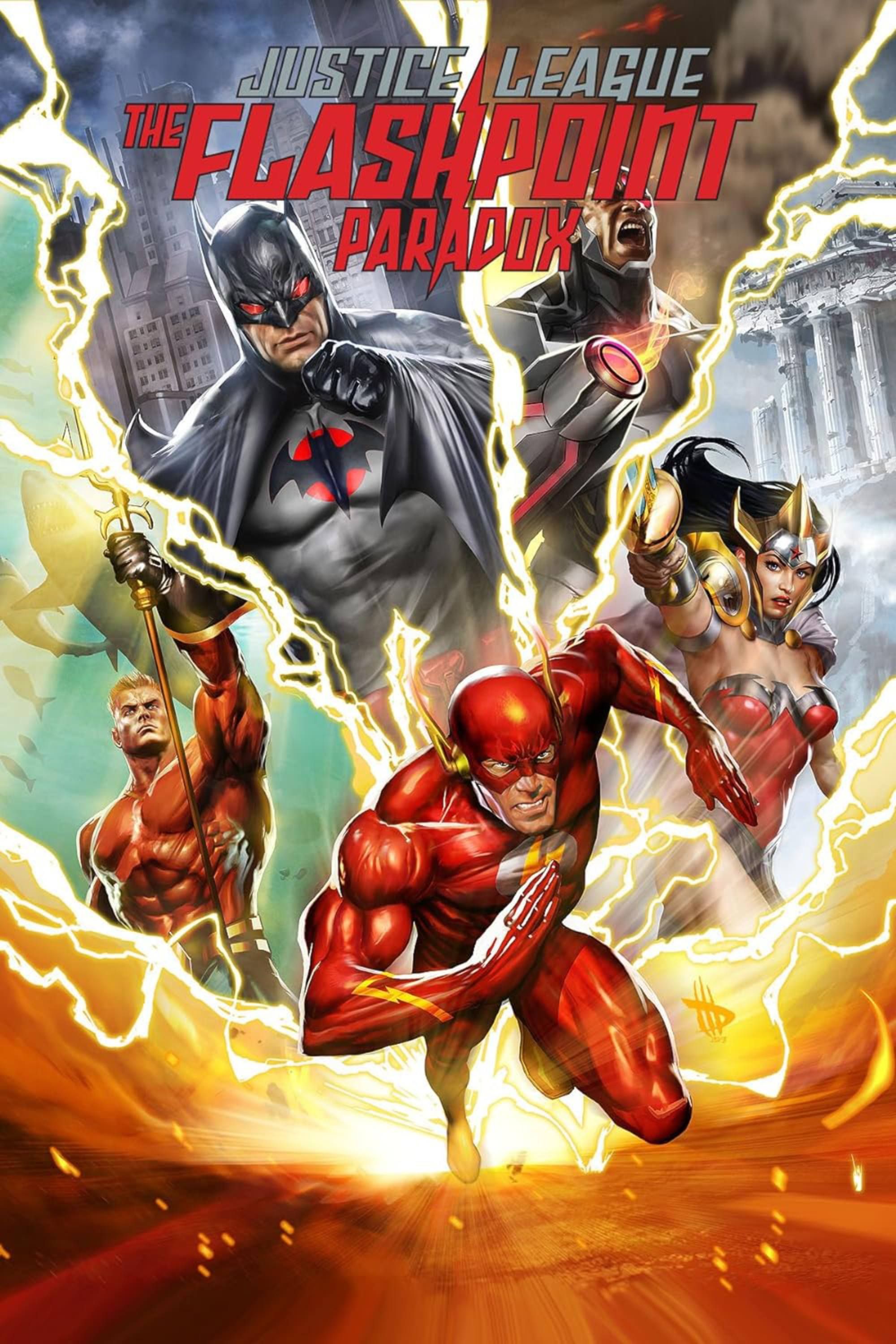
Justice League: The Flashpoint Paradox (2013)
Justice League: The Flashpoint Paradox revolves around Barry Allen, known as The Flash, who inadvertently creates an alternate timeline after going back in time to prevent his mother’s murder. Directed by Jay Oliva, the film features an altered reality where the Justice League is replaced by conflicting heroes and villains, with cataclysmic consequences. This animated feature showcases the complexities and ramifications of time travel within the DC Universe.
- Director
- Jay Oliva
- Release Date
- July 30, 2013
- Runtime
- 75 Minutes
6 Alfred Becomes The Macaroni
Harley Quinn
The animated series Harley Quinn offers a more humorous and irreverent take on the DC universe. One especially memorable moment involves Alfred Pennyworth, Batman’s loyal butler. In a hilarious twist, Alfred takes on the persona of “The Macaroni,” a vigilante who protects Gotham City while Batman is recovering from his injuries.
Dressed in an elaborate 18th-century outfit complete with a powdered wig, The Macaroni is a perfect blend of Alfred’s refined persona and his hidden talents. While the concept is played for laughs, it’s also a nod to Alfred’s often-overlooked abilities and his unwavering dedication to Bruce. The Macaroni might be a comedic alter ego, but it’s a reminder that Alfred is more than just a butler – he’s a key part of Batman’s mission. Even in a parody, Alfred is a stalwart ally.
5 Jason Todd’s Death And Return
Batman: Under The Red Hood
One of the most emotionally charged storylines in Batman’s history is the death and subsequent resurrection of Jason Todd, the second Robin. Originally told in the respected comic book story “A Death in the Family,” Jason Todd is beaten to death with a crowbar and left to die in an explosion by Joker. Jason’s death haunts Batman, fueling his guilt and reinforcing his rule against killing. Later, Jason resurfaces as the villain Red Hood, where he is scarred, bitter, and consumed by vengeance.
Batman: Under the Red Hood brought this story to life, while it has only ever been alluded to in live-action. Jason Todd’s death was hinted at in Batman v Superman: Dawn of Justice with Robin’s defaced uniform hanging in the Batcave. The confrontation between Batman and Jason is heartbreaking and could make a highly compelling live-action movie.
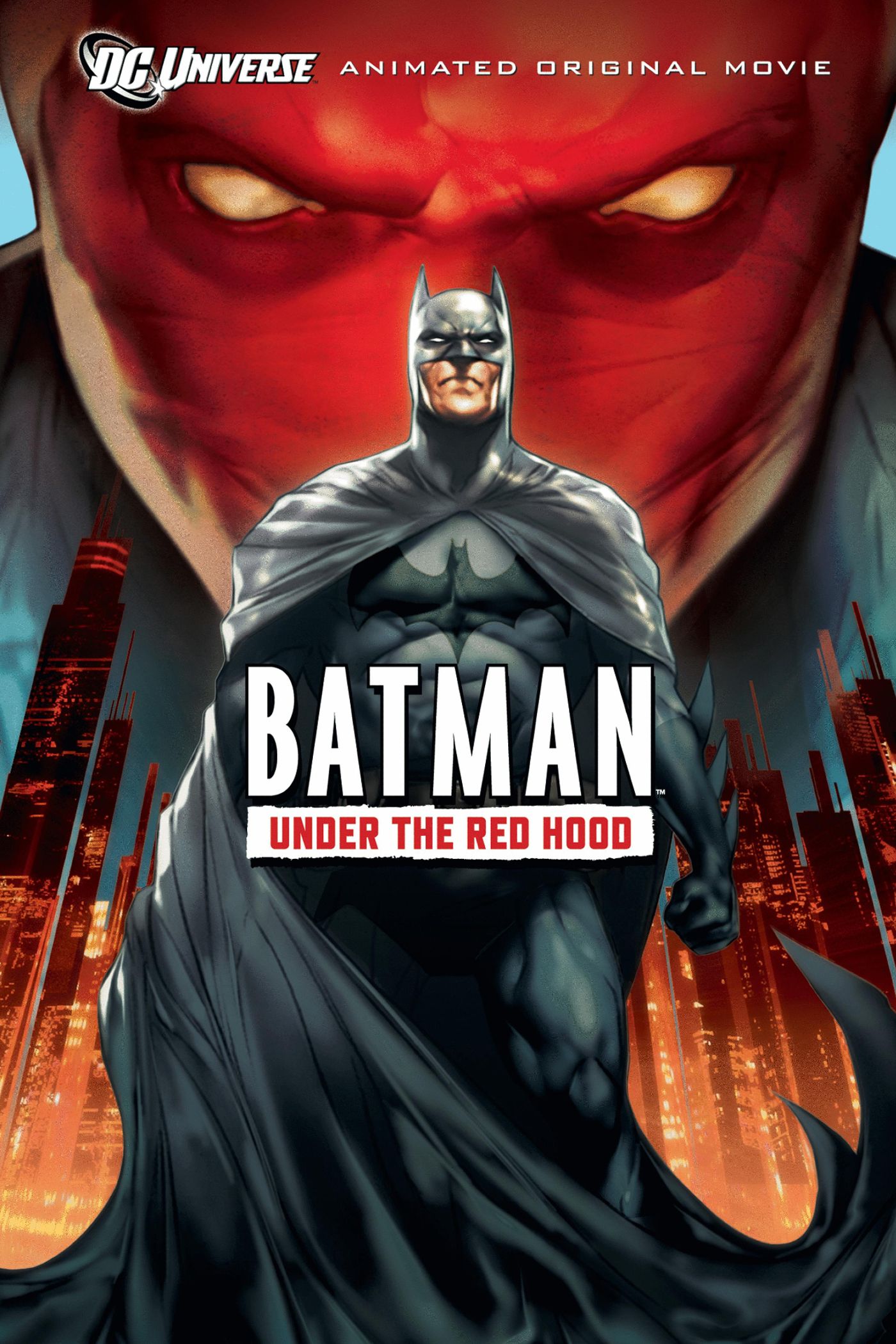
Batman: Under the Red Hood
A mysterious vigilante called the Red Hood shows up in Gotham City, implementing one method that Batman does not: the Red Hood kills his targets. Batman and Nightwing are hot on the Red Hood’s trail, but Batman makes a surprising revelation about the vigilante’s identity.
- Director
- Brandon Vietti
- Release Date
- July 27, 2010
- Runtime
- 75minutes
4 The Laughing Fish
Batman: The Animated Series Season 1, Episode 46 “The Laughing Fish”
“The Laughing Fish” is an episode from Batman: The Animated Series that perfectly captures the macabre humor and sinister genius of the Joker. Based on several Joker stories from DC Comics, Mark Hamill’s Joker embarks on a bizarre scheme to trademark fish that bear his gruesome grin, a result of him poisoning Gotham’s waters. When the authorities refuse to grant him the copyright, the Joker escalates his plan, leading to a deadly game of cat and mouse with Batman.
What makes this episode stand out is the way it showcases the Joker’s twisted logic. He’s not just a villain with a plan; he’s a force of chaos, motivated by a desire to bend the world to his own insane rules. With the numerous live-action Joker adaptations, it is a shame that such a classic and dynamic scheme has not been depicted outside of animation.
3 Robin Becomes Nightwing
The New Batman Adventures Season 2, Episode 5 “Old Wounds”
One of the most significant developments in Batman lore is Dick Grayson’s evolution from Robin into Nightwing, a transformation that is poignantly depicted in The New Batman Adventures. In the episode “Old Wounds,” we see flashbacks that explain the rift between Dick and Bruce, which ultimately leads to Dick abandoning the Robin mantle. The episode explores the growing tension between Dick and Bruce, as Dick becomes increasingly frustrated with Bruce’s authoritarian approach to crime-fighting.
This culminates in a heated confrontation, where Dick renounces his role as Robin, feeling that Bruce has become too controlling and unyielding. This storyline is crucial because it highlights the complexities of the mentor-mentee relationship between Batman and Robin. It’s a story of growth, independence, and the inevitable conflict that arises when the student surpasses the teacher. While Nightwing has been depicted in Titans, he has not appeared in live-action movies.
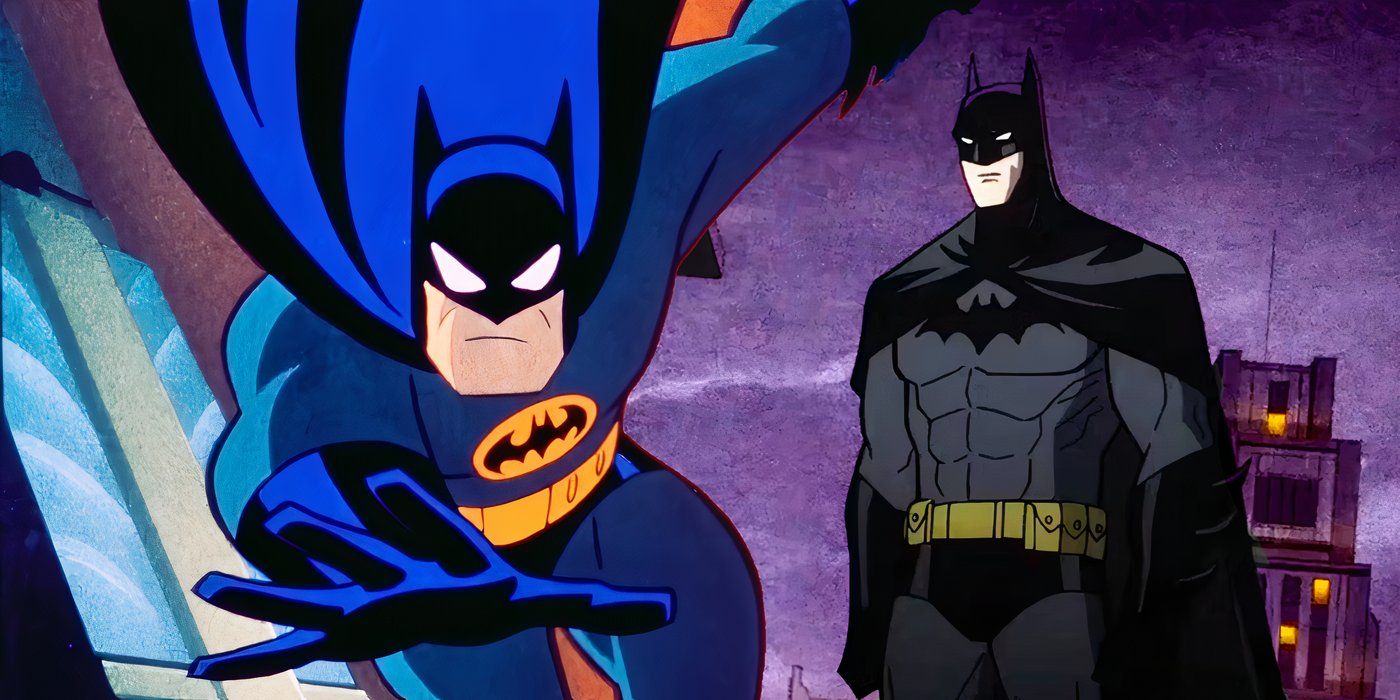
Related
10 Best Animated Batman Suits That Put Live-Action DC To Shame
Batman’s iconic suit has changed a lot throughout his many appearances in animated DC projects, and often with varying degrees of success.
2 Batgirl Becomes Oracle
Batman: The Killing Joke
The Killing Joke is one of the most controversial and influential stories in the Batman universe. The highly revered narrative is known primarily for its treatment of Barbara Gordon, a.k.a. Batgirl. In the story, the Joker shoots Barbara, paralyzing her from the waist down. This traumatic event marks the end of her career as Batgirl but also the beginning of her new role as Oracle.
Barbara’s transformation into Oracle is a significant development in Batman lore. Refusing to be sidelined, Barbara reinvents herself as Oracle, using her intelligence, hacking skills, and vast knowledge to become an invaluable ally to Batman and the entire superhero community. The story was adapted in the animated movie Batman: The Killing Joke, which explored the tragic and iconic narrative. The harrowing Joker scene and the heartbreaking consequences of Joker’s attack are incredibly compelling and are landmark Batman moments.
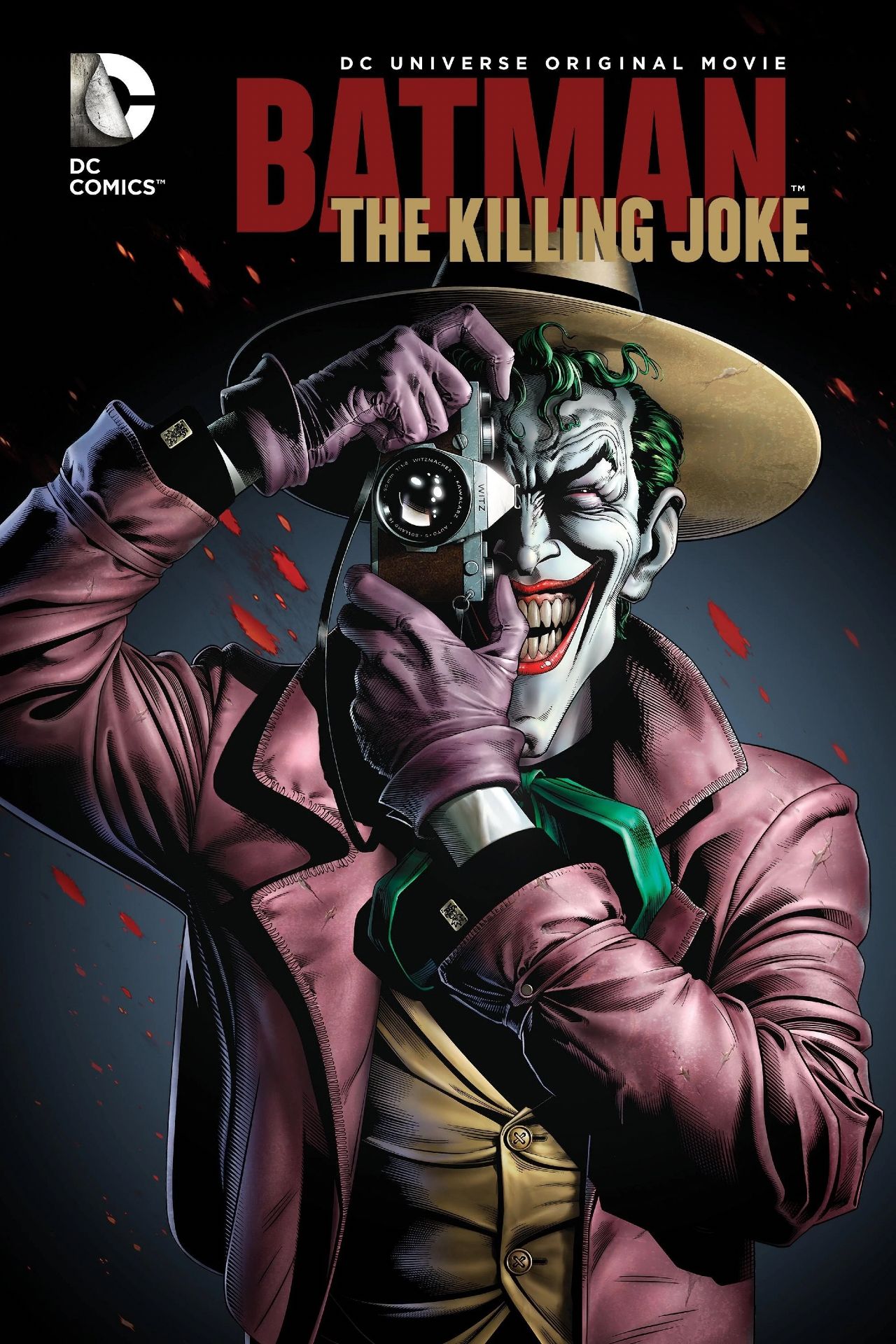
Batman the Killing Joke
Based on one of the best-selling graphic novels of all time, Batman: The Killing Joke follows Batman as he hunts for the Arkham fugitive Clown Prince of Crime himself, the Joker. When the Joker attacks the Gordon family to prove a diabolical point, the stakes become personal for the Caped Crusader. This story explores the depths of the madness of the Joker’s mind and how far he’s willing to go to prove that all human beings can change their morals if pushed enough.
- Director
- Sam Liu
- Release Date
- July 25, 2016
- Runtime
- 86minutes
1 The Killing Joke
Batman: The Killing Joke
The final scene of The Killing Joke is one of the most enigmatic and debated moments in Batman history. After a harrowing story that delves into the twisted relationship between Batman and the Joker, the graphic novel ends with the two characters sharing a moment of bizarre laughter. In the climax, the Joker tells Batman a joke about two inmates trying to escape an asylum. The joke, the meaning of which remains a mystery, prompts laughter from the Dark Knight.
This was adapted perfectly in Batman: The Killing Joke. The animated movie ends with the image of Batman and Joker laughing together, which is especially unsettling considering Joker’s heinous crimes throughout. Like the comic, the movie ends ambiguously, with the laughter fading out and the camera panning down to the rain-soaked ground. The scene has become one of the most iconic and hotly debated Batman moments, which has never been adapted into live-action.




![Los productores ejecutivos de ‘Outer Banks’ planean ‘explorar’ la dinámica de Rafe y Kiara después [Spoiler] Muerte](https://i1.wp.com/www.usmagazine.com/wp-content/uploads/2024/11/Outer-Banks-Producers-Say-They-Plan-to-Explore-the-Rafe-and-Kiara-Dynamic-After-JJ-s-Death-783.jpg?w=1000&quality=40&strip=all&w=238&resize=238,178&ssl=1)

